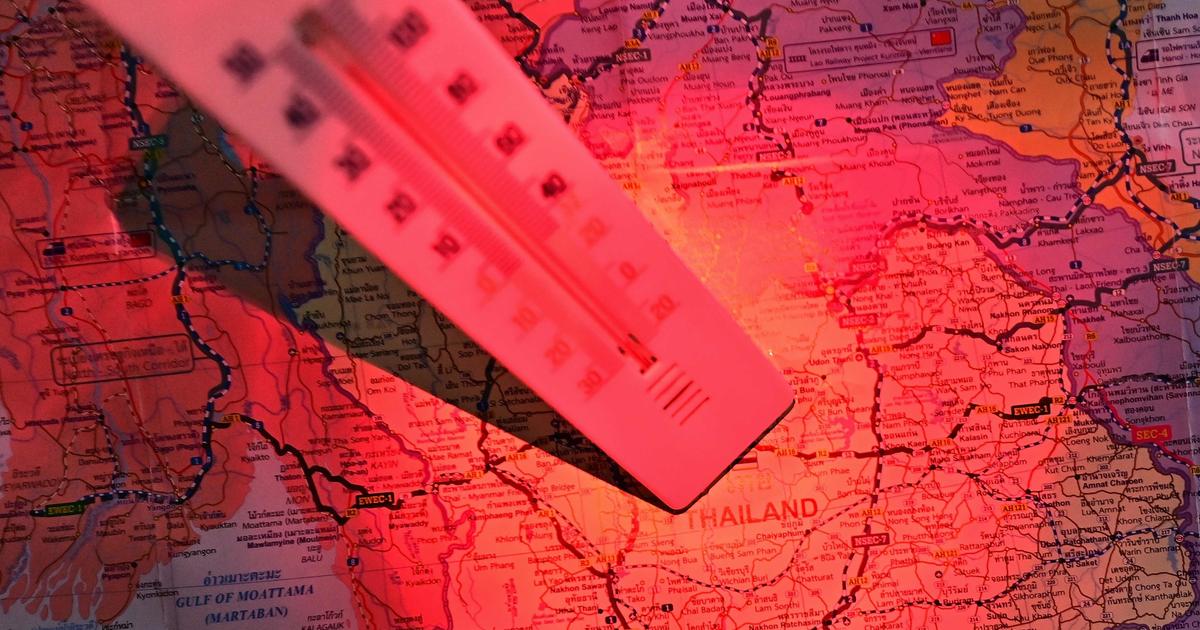Enlarge image
Floods in North Rhine-Westphalia: Cars are in the water in Erftstadt on the flooded Bundesstraße 265
Photo: Marius Becker / dpa
The flood disaster in North Rhine-Westphalia and Rhineland-Palatinate has created new pressure in the fight against man-made climate change.
There is broad consensus within the European Union that they want to be climate neutral by 2050 - but implementation is often still lacking.
According to experts, the project will not completely avert the consequences of climate change - but it can be mitigated.
What does this mean for the situation in Germany in the coming years?
How is the climate changing?
And what are the consequences for agriculture, our health and living?
An overview.
Flood protection
As a result of man-made climate change, floods will increasingly pose a threat towards the year 2050, especially in areas in Northern and Western Europe, says Ralf Merz, hydrologist at the Helmholtz Center for Environmental Research in Halle an der Saale.
This development is mainly related to the so-called jet stream.
This is a band of strong winds several kilometers high that is driven by large-scale temperature differences, for example between the Arctic and the tropics.
As these differences become smaller, the jet stream apparently also subsides, so that high and low pressure zones last longer over Europe.
“That happened again now with the low pressure area 'Bernd'.” According to this, such a low would have moved on after two days, now it has stopped in one place - with devastating consequences.
heat
There is little doubt in the professional world that long-lasting high temperatures are associated with man-made climate change.
This will pose great challenges for people in the future, explains Daniela Jacob, meteorologist and director of the German Institute for Climate Services (Gerics) in Hamburg.
"By 2050 we have to expect that the summer months will be significantly hotter and drier," said Jacob.
For the Upper Rhine Graben near Karlsruhe, it can already be projected that by the middle of the century the number of hot days will approximately double compared to the period from 1970 to 2000.
health
More heat also has an impact on health.
"If the temperature does not drop below 20 degrees at night, that means that we cannot rest properly and are less productive," explains Jacob.
Andreas Marx from the Helmholtz Center for Environmental Research in Leipzig assumes that the heat will put additional strain on the health system.
For example, it could lead to more circulatory diseases.
France, for example, had a major heat wave in 2003 and at that time a good 35,000 additional deaths as a result of permanently high temperatures.
Germany was largely spared that year, which is why there are poorer warning systems for heat waves in this country.
That will probably change by 2050, says Marx.
Agriculture
Persistent heat and long, heavy rain also mean a change for those who are very dependent on the weather.
"In agriculture, we have to rely on varieties that can cope with these strong temperature and humidity variations," says researcher Jacob.
Another problem is that water will become scarcer by 2050.
"Agriculture has to adapt in such a way that it does not have to irrigate the soil as often," adds the specialist.
In addition, farmers should not allow the soil to dry out too much, if possible.
Overall, it will be more important to consume the food produced in agriculture carefully, said the chairman of the German Climate Consortium, Mojib Latif.
Too much food is already being thrown away today.
“A lot of energy and raw materials are wasted unnecessarily.
That just can't work. "
tourism
The topics of tourism and climate change are already closely linked today.
According to the meteorologist Jacob, our holiday destinations will have changed by the middle of the century.
The North and Baltic Seas could expect the summers there to be warmer and more stable.
The threat from rising sea levels there is low until 2050 - the German coasts are "relatively well prepared" for this.
However, this will become more critical by the end of the century.
According to experts, other regions will suffer from the climatic changes.
"The Mediterranean will probably not be so attractive in the future," says Latif.
According to Jacobs, there will be over 40 degrees in the summer months.
“It's too warm for vacation.
These regions will then be among the losers in tourism. "
Living
The fact that rooms are cooled down with energy-intensive air conditioning in hot summers exacerbates the problem of man-made climate change, says Jacob.
Scientist Marx, member of the Helmholtz Climate Initiative, therefore recommends insulating building envelopes much better, "then this also has the effect in summer that heat does not get into the house as quickly."
In his opinion, German cities in particular need to be rethought.
"We need green and blue infrastructure in the city, that is, parks and bodies of water." This is how you can ensure significant cooling in hot urban canyons.
"This is because plants evaporate water and energy is carried away in the process."
"We are just leaving the comfort zone"
All experts emphasize that more needs to be done to curb the impact of climate change.
"We are just leaving the comfort zone," warns climate researcher Latif.
But it is still possible to meet the Paris climate targets - even if it is a "Herculean task".
According to the hydrologist Merz, climate change has advanced, »but we are still, hopefully, at the tipping point at which the climate will change significantly over the long term.
That means we have to stop the development now, before it's too late. "
jme / dpa



/cloudfront-eu-central-1.images.arcpublishing.com/prisa/CPCAPBNNZFHSDDUPITKV6D3I3A.jpg)





